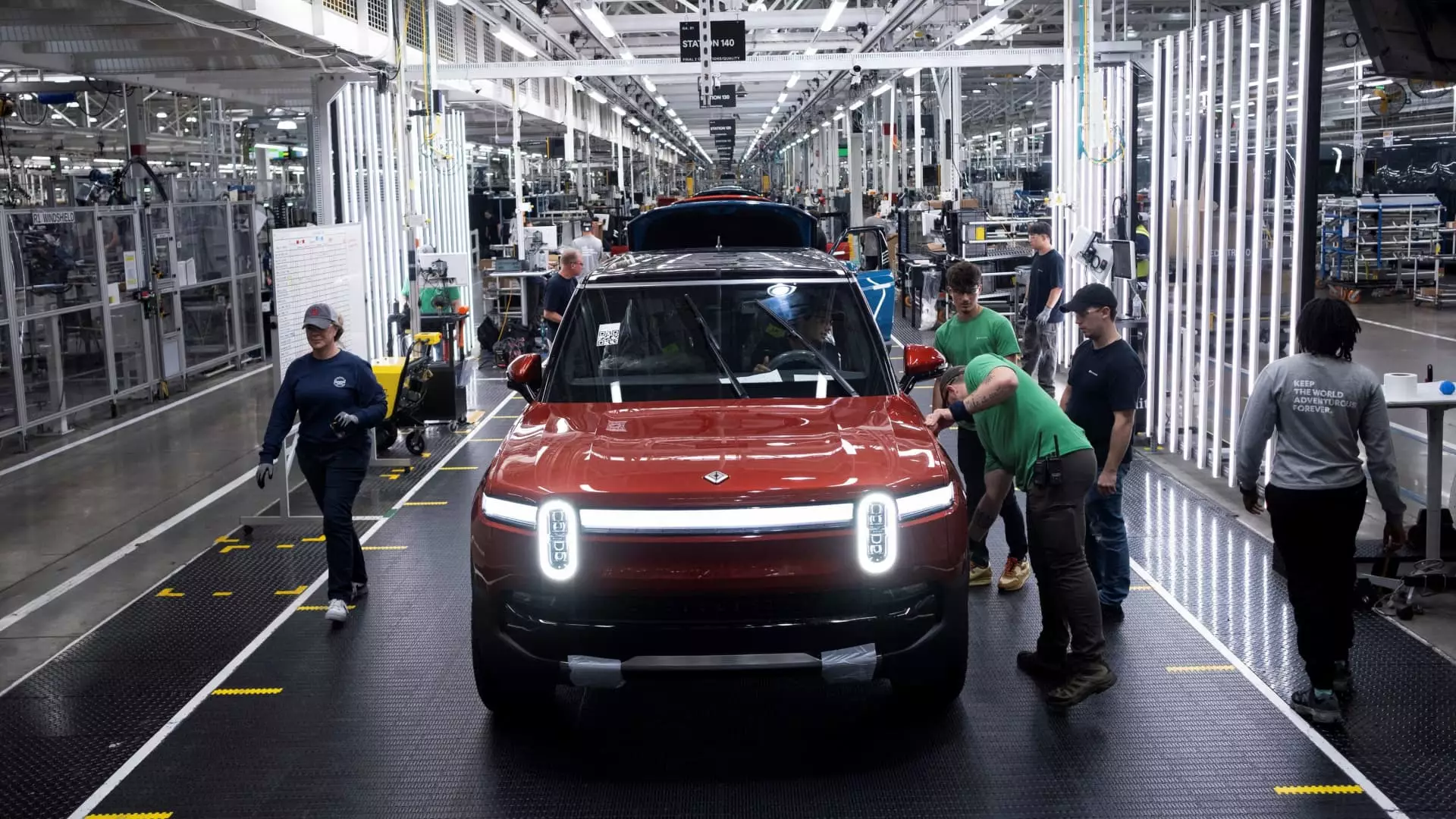Rivian Automotive, an electric vehicle (EV) startup that has garnered significant attention since its inception, has encountered substantial turbulence in the stock market following the announcement of its third-quarter performance. On Friday morning, shares of Rivian plummeted approximately 4% as investors reacted to the company’s failure to meet vehicle delivery expectations, as well as its decision to downgrade its production forecast for the upcoming year.
In their latest report, Rivian revealed that it produced 13,157 vehicles in the third quarter and delivered only 10,018—a far cry from the 13,000 deliveries analysts had anticipated. This disappointing performance has renewed concerns regarding Rivian’s ability to fully realize its production capabilities amidst the challenges faced in the EV market.
Supply Chain Disruptions Prompt Production Forecast Revision
At the heart of Rivian’s troubles is a significant supply chain disruption attributed to a shortage of critical components, particularly concerning their in-house motors. The company revised its annual production goal from 57,000 to a range of 47,000 to 49,000 vehicles due to these issues. This announcement highlights a growing trend within the EV industry, where companies face increasing challenges in securing essential parts required for production.
Rivian’s CEO, RJ Scaringe, has acknowledged these complications at recent investor conferences, suggesting that the multi-tiered supplier ecosystem continues to present unforeseen difficulties. Notably, the shortage of crucial components has not only hampered Rivian’s production capabilities but has also raised questions about its operational efficiencies and long-term sustainability in a fiercely competitive market.
Future Outlook Uncertain Amid Financial Pressures
Despite the substantial setbacks, Rivian has maintained its delivery outlook for 2023, which is projected to reflect low single-digit growth compared to the previous year. The anticipated delivery range for the full year stands between 50,500 and 52,000 vehicles, yet such projections cast a shadow of uncertainty over the startup’s financial health. The company has already seen its stock value plummet more than 50% in 2024 alone, raising alarms about its cash burn rate and overall market demand for electric vehicles.
The disappointing third-quarter results, combined with the downward revision of production forecasts, underscore the volatility that continues to challenge Rivian as it seeks to establish itself as a leader in the EV landscape. With dwindling investor confidence amidst slower-than-expected EV demand, Rivian’s journey remains precarious, as it strives to navigate the intricacies of production, supply chain management, and market dynamics.
Rivian Automotive’s recent struggles illustrate the broader challenges facing the electric vehicle industry, where manufacturing and supply chain complexities can significantly impact production capabilities and financial performance. As the company grapples with these difficulties, stakeholders will be keenly observing how Rivian adapts to its current circumstances. The future trajectory of Rivian will depend on its ability to rectify these issues, restore investor confidence, and ultimately meet its ambitious production goals in an ever-evolving market landscape.

